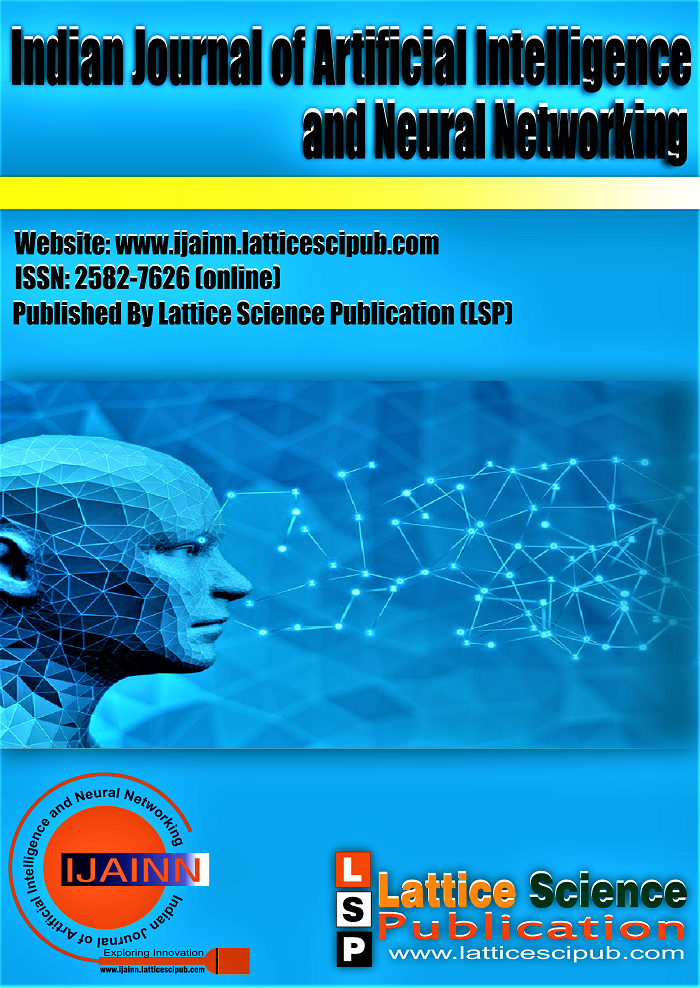Material Selection of Machine Design using Expert System: A Comparative Study
Main Article Content
Abstract
This research venture one of the major concerns in the field of expert system. Material selection an important key issue of machine design. Objectives of computerized selection procedure are reduced to personal bias and gives the more accurate optimized result. The concept of entropy; to evaluate the weight factor for each alternative material property or performance index, and the other is TOPSIS and SAW; to rank the candidate materials, for which several requirements are considered simultaneously. Sensitivity analysis is introduced here for better performance of selection.
Downloads
Article Details

This work is licensed under a Creative Commons Attribution-NonCommercial-NoDerivatives 4.0 International License.
How to Cite
References
Bay, H., T. Tuytelaars, and E. Van gool. Surf speeded up robust features. In computervision–eccvSpringer,2006, pp.404–417. [CrossRef]
Borghese, N.A., andS. Fomasi. Automatic defect classification on a production line. Intelligent industrial systems ,2015,pp. 443–46. [CrossRef]
Chan, C., and G. K. H. Pang.Fabric defect detection byFourieranalysis.IEEE Trans. on Ind,2000, Appl4 ,pp.267-76.
Everingham, M.,S.A.Eslami,L.Van gool, C.K.Williams, J. Winn, and A. Zisserman.Thepascalvisualobjectclasseschallenge:Aretrospective. International journal of computer vision,2015, pp.137–39.
Goyal, A. Automation in fabric inspection, in automation in garment manufacturing.Woodhead publishing,2018 ,pp.140–43. [CrossRef]
Habib, T., C. Faisal, R.Rokonuzzaman, and M. Ahmed. Automated fabric defect inspection: a survey of classifiers. International journal in foundations of computer science & technology (IJFCST), 2014,pp.17-25. [CrossRef]
Hillel , R. Lerner, D. Levi, and G. Raz. Recentprogressinroad and lane detection: a survey. Machine vision and applications, 2014,pp.10–21.
Huanhuan, Z., M. Jinxiu, J. Junfeng, and L. Pengfei. 2019. Fabric defect detection using LO gradient minimization and fuzzy C-means. Applied Sciences ,pp.3506-10. Available : doi:10.3390/app9173506. [CrossRef]
İbrahim, Ç. H., D. L. Canan, and T. Mehmet. 2016. Application of neural networks (NNs) for fabric defect classification ,pp.221-49. Available : doi:10.5772/63427. [CrossRef]
Kang T.J. et al.Automatic Structure Analysis and Objective Evaluation of Woven Fabric Using Image Analysis. Textile Res. J,2001,pp.261-70. [CrossRef]
Kumar, A. 2003. Neural network based detection of local textile defects. Pattern Recognition ,pp.1645–59. Available: doi:10.1016/S0031- 203(03)00005-0. [CrossRef]
Lal, R. J., B. Ajay, and C. Ankit. 2013. Real time fabric defect detection system on an embedded DSP platform,pp.5280–84.
Available :doi:10.1016/j.ijleo.03.038. [CrossRef]
Li, Y., W. Zhao, and J.Pan .Deformable patterned fabric defect detection with fisher criterion-based deep learning. IEEE Transactions on Automation science and Engineering , 2017,pp.1256–64. [CrossRef]
Liu, J.,S. Zhang, S. Wang, and D.N. Metaxas Multispectral deep neural networks for pedestrian detection , 2016, pp.155–59. [CrossRef]
Long, J., E. Shelhamer, and J. Darrell. Fully convolutional networks for semantic segmentation.In proceedings of the IEEE conference on computer vision and pattern recognition,2015 ,pp. 3431–40. [CrossRef]
Lois, M. H., F. Franco ,T. Bruno, and L. Giuseppe. Neural networks for the optical recognition of defects in cloth, 1996,pp.3183-90 . [CrossRef]
Rebhi, A., I. Benmhammed, S. Abid, and F. Fnaiech. Fabric defect detectionusinglocalhomogeneityanalysisandneuralnetwork.Journalof photonics, 2015,pp.10-13. [CrossRef]
Rebhi, A., B. Issam, A. Sabeur, and F. Farhat. 2015. Fabric defect detection using local homogeneity analysis and neural network. Journal of Photonics,pp.1–9. Available :doi:10.1155/2015/376163. [CrossRef]
Sari-Sarraf, H.,and J. S. Goddard. Vision system for on-loom fabric inspection.IEEE transactions on industry applications , 1999,pp.1252-59. [CrossRef]
Subrata, D., A. Wahi, S. Keerthika, N. Thulasiram, and S. Sundaramurthy. Automated defect detection of woven fabric using artificial neural network. Man Made Textiles in India .2019,pp.113–15.
Vikrant, T., and S. Gaurav. Automatic fabric detection using morphological operations on bit plane. International Journals of Engineering Research &Technology , 2013,pp.856–61.
Wang, T., Y. Chen, M. Qiao, and H. Snoussi. 2018. A fast and robust convolutional neural network-based defect detection model in product quality control. The International Journal Advanced Manufacturing Technology ,pp.3465–71. Available:doi:10.1007/s00170-017-0882-0. [CrossRef]
Wiltschi, K., A. Pinz, and T. Lindeberg. 2000. Automatic assessment scheme for steel quality inspection. Machine Vision and Applications ,pp.113–28.Available : doi:10.1007/s001380050130. [CrossRef]
Zhang, X. F., and R. R. Breese. Fabric defect detection and classification using image analysis. Textile Res. J65, 1995,pp.1-9. [CrossRef]





